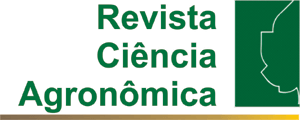The use of organic waste in the composition of substrates for seedlings can be an alternative to recycling these materials. This study aimed to evaluate the agronomic characteristics of tomato seedlings grown with regional alternative materials being used as substrates and under foliar fertilisation. The experiment was conducted in a protected environment on the campus of the Federal University of Piauí, in Bom Jesus in the state of Piauí, Brazil. A completely randomised experimental design was used, with the treatments arranged in a 5 x 2 factorial scheme, corresponding to the five materials used as substrates, with and without foliar fertilization (Vitam ®), and with four replications. The materials consisted of: 1) soil, sand and cattle manure; 2) decomposed stem of the moriche palm [paú de buriti]; 3) carnauba residue with rice husks; 4) carnauba powder; 5) semi-decomposed carnauba residue. The seeds were grown in expanded polystyrene trays of 128 cells. The following were evaluated: Percentage emergence; speed of emergence index; plant height; number of leaves; stem diameter; length of the longest root; root volume; fresh and dry weight of the shoot and root; and total dry weight. The carnauba residue with rice husks and the semi-decomposed carnauba residue presented averages which were significantly superior to the other materials for all the studied variables, except for percentage emergence and speed of emergence index. In the production of tomato seedlings, regardless of the material used as substrate, and except for the carnauba powder, application of foliar fertilisation results in better quality seedlings.
Lycopersicon esculentum Mill; Mineral nutrition, Propagation; Organic waste











